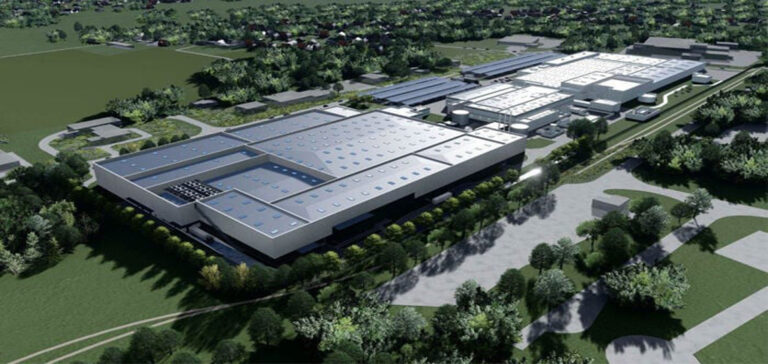Stellantis and Samsung invest over $3.2 billion in the construction of its second gigafactory for electric car batteries in the USA.
A strategic partnership for automotive electrification
The joint venture, named StarPlus Energy, is committed to locating this new plant on the same site as its first “gigafactory” currently under construction in Kokomo, Indiana. This first plant had already attracted interest because of its initial investment, estimated at between $2.5 and $3.1 billion. However, with the addition of this new plant, the total investment planned for the two sites will reach over 6.3 billion dollars, or around 5.5 billion euros. What’s more, this expansion will create 2,800 jobs, strengthening the automotive industry and contributing to the local economy.
Increased production capacity
Scheduled to come on stream in early 2027, the new plant will have an annual production capacity of 34 gigawatt-hours (GWh). This capacity will be added to that of the first plant, bringing the total annual production capacity of the two sites to 67 GWh. These batteries will power Stellantis brand vehicles and play a key role in the transition to clean, safe and affordable mobility solutions.
A step towards carbon neutrality
Mark Stewart, Director of Operations for North America, explains that these investments are essential if we are to achieve our goal of carbon neutrality by 2038. Stellantis plans to sell 50% electric cars in the United States by 2030, with 25 new vehicle launches on the program. To achieve this, the company is committed to providing around 400 GWh of battery capacity over this period. This investment is in line with our vision of sustainable, environmentally-friendly mobility.
It is important to note that this announcement comes at a time when Stellantis and other carmakers in the USA are facing a large-scale strike, launched in mid-September by the United Auto Workers (UAW) union to demand better pay conditions. This complex situation underlines the challenges facing the automotive industry as it pursues major investments in electric mobility.
In conclusion, Stellantis and Samsung’s investment in this new battery plant for electric cars reflects a commitment to cleaner mobility and the goal of reducing carbon emissions. This will have a significant impact on the automotive industry in the United States, and shows that manufacturers are ready to meet the challenges of shaping the future of sustainable mobility.





















